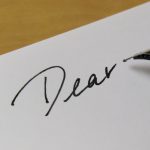- Literature, politics, democracy and the quest or struggle for social justice enjoy a long or enduring symbiotic association. Right from the beginning of time – in the mists and fogs of which human memory cannot penetrate – art has always played a very prominent role in the arrangement of society and management of the affairs of men. From ancient civilisational manuscripts – to the holy scriptures, we can see art as being the bright lamp that guides.
- Besides or beyond their religious instruction, I have always considered the holy scriptures to be – first of all – works of literature. The prophets, I have equally considered to be artists, scribes, muses and sweet-tongued poets.
- Democracy, I want to define as the tenet that holds that majoritarian views should always be upheld. But – in equal measure – holding that the views of the minorities must never be neglected. Thus – from where I am sitting, democracy is a cement that holds society together in all its contradictions.
- I am saying that literature, art, emancipation and democracy are conjoined twins. Conjoined from the hip. They are like a knot too complicated to untie. I argue that any attempt at severing and or separating those ties is not only a complex exercise – but also – one that bears disingenuous implications.
- I am saying that literature and or art are very important cogs in the wheels that push society towards the better direction of justice and or democracy.
- But – I should add right from the outset that – just like many an essential cog in every wheel – if neglected or misused – it has capacity to cause the machine to malfunction. In this case, to cause the wheels of democracy totake a dangerously wrong turn towards inequity, injustice and oppression.
- Allow me to illustrate the first point – with examples.
- Literature played a prominent role in Africa’s independence struggle. Not only did many writers exercise their talent(s) to spread liberation ideology or play the prominent role of highlighting colonial atrocities to the world –thus speeding up its end – but also, many liberation movements were led by poets and thinkers like Neto, Cabral, Nkrumah, Lumumba and Senghor.
- Far away from those fathers of African independence – when the dynamics and meaning of liberation changed, the push for what has come to be called the continent’s second liberation (the struggle for multipartyism and ordemocratic inclusion away from one party states) was also led by writers and poets who used their talents to dream or champion inclusive societies.
- I think that many of us here are familiar with the heroic struggles and tales of writers like Wole Soyinka in Nigeria and – closer here to home in Kenya, the inimitably courageous Ngugi Wa Thiong’o who – despite imprisonmentby his government – did not feel retrained enough to put down his very critical opinions on ordinary toilet paper! Here in Uganda, Okot p’Bitek led from the front and riled against undemocratic and or oppressive practices.
- But today, I will not dwell only on history to fleshen out my point. Even in contemporary Ugandan society, we have artists, thinkers, writers and or poets who have used and or continue to deploy their crafts in the service of society and the entrenchment of democracy. The list of those writers is too long to be fully enumerated here.
- But suffice to note that the revolution and democratisation of social media technologies has assisted to throw up artists and writers whom we would otherwise not have known or who would effectively have been censored bythe tedious beauracracies – and sometimes dictatorship – of conventional editorialism. I am saying that I am sure that – just like night follows day – if it were not for the liberating and or democratic character of social media not many of us would have heard the name or laughed or been shocked by the ideas of Makerere’s academic – agree with her or not, Dr. Stella Nyanzi.
- I am making and need to stress the point that literature is a most powerful weapon a people can use to liberate themselves and achieve a just society. Accordingly – and in my opinion – the writer has an abundant responsibilityto exercise his or her talents in the service of social justice and democracy.
- I should not be misconstrued as attempting to undemocratically legislate for the writer what he should do with his craft. No. What he does with his art is his business, just as is his sex. He may chose to have it sitting or standing.
- I am making the point – however – that if it were left to me alone – which is not always the case – I would beseech the writer – you creative youth – to deploy your craft in democracy’s service. In this regard, I will use KarlMarx’s voice to stress the point that ‘’Philosophers have hitherto only interpreted the world in various ways; the point – however, is to change it.’’
- This then brings me to comment on the tremendous importance of literary initiatives like Writivism and the Lantern Meet of Poets, among the others. These – I believe – are very important platforms to build a culture where art is used – not idly as a hobby – but rather as a tool for social transformation.
- I am glad to report to you that these brilliant initiatives – and many more – have admirably risen to their historical responsibility of grooming and or nurturing young talented writers, bending them in that nascent and crucialstage towards the employment of their art as a tool for social commentary.
- For the case of the Lantern Meet of Poets, this has been the case since 2007. When I was still a young University student, I used to meet up – after every fortnight – with Lantern colleagues to share and critique our poetry.
- I noticed keenly – then – that the poetry that spoke to the social ills of the day like corruption, injustice, human rights violations, bad governance and undemocratic behaviours generated the greatest acclaim. Because of thisprincipled ideological posture that the Lantern Meet of Poets took, all its poetry recitals at the National Theatre always sold out and or attracted a full house. It then sent the message that the wider public was particularlynot interested in poetry that satiated individual needs and or interests – but rather – that which spoke to their everyday predicaments and or sorrows.
- The Lantern Meet continues in this most glorious tradition. Late last year (2019), it published a 264-page poetry anthology of remarkable quality – taking it from the sheer diversity of topics tackled and the variety of writersand or writing styles therein. I believe that that anthology – Streetlights at Noon Eclipse – is this country’s most important document of contemporary poetry. Therein you will find and discover many secrets to Uganda’s writingfuture. Most importantly – however – is the fact social consciousness is the golden thread that can be seen to run throughout it. I invite you to get a copy.
- For the case of Writivism – which we founded in 2013, socially conscious writing has always been a central tenet and holding pillar of its work. The unique word Writivism itself is a creative merger of two words that defineWritivism’s ideology – writing and activism. Right from the beginning – and as I have elaborately argued above – it has always believed that writing should be used or employed as a tool to speak to the ills that afflict society.
- It has always been our argument that the artist or the writer does not have the luxury of choosing what to do with his art, especially in the midst of the great odds that face his society. This imperative is much more important inthe African context where literary levels are low and there is an abundance of undemocratic behaviour, violation of human rights and or irresponsible governmental conduct. The role of the artist in this scheme of things – then– is to be the spokesperson of the suffering and lot of the most vulnerable in society. To be like the inimitable Ikem Osodi – National Gazette Editor of Kangan Republic in Chinua Achebe’s brilliant novel Anthills of the Savanna.
- So, for more than seven years now, Writivism has nurtured and groomed hundreds of writers from all across the African continent in this tradition. Many have gone on to make names for themselves and win top literaryawards. Many have taken part in ground-breaking or daring public interest journalism. Many have gone on to write novels of great acclaim. But – most importantly – many continue to use their craft to dare imagine and create abetter, democratic, more tolerant and just world for all who live in it. In this regard, I also invite you to get access to Writivism’s anthologies which can be found online. I also invite you to take part in its activities for social good.
- Finally, I need to speak as a lawyer and say that the role I have strenuously argued that literature should play is the one I believe law should equally play – namely, to challenge injustice and entrench democracy. The law, justlike literature, has so much capacity and or potential to right social wrongs. This can be done through that most empowering of tools – Public Interest Litigation. In sum – I say – that all talent should be deployed for social good.
Paper presented at the Konrad Adenauer Stiftung – Uganda and South Sudan Webinar themed ~Writing as Emancipatory Practice~ on 16 June, 2020.
This post was created with our nice and easy submission form. Create your post!




